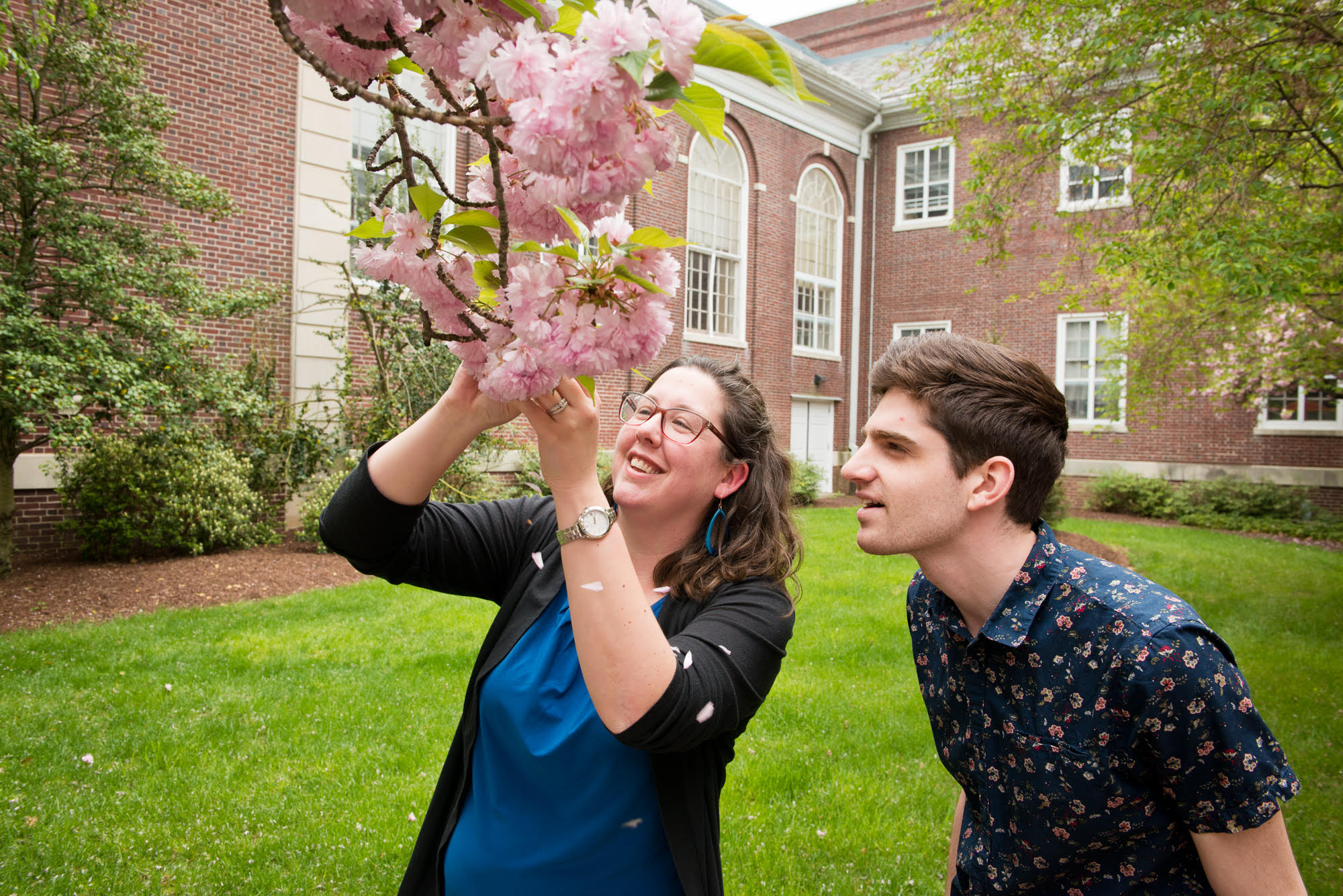Dr. Wendy Clement, Associate Professor of Biology, has been awarded a grant from the National Science Foundation (NSF) to support her research program and to engage undergraduate research collaborators in her work. The main goal of Dr. Clement’s research is to use honeysuckles to better understand the evolution and genetic regulation of a plant trait called fusion. Dr. Clement is leading this three-year, $900,000 NSF grant, which also includes collaborators from Yale University and St. John’s University. The award funding is split nearly equally among the collaborating institutions.
As an evolutionary biologist and plant systematist, Dr. Clement studies the evolution of present-day plant biodiversity. Her work integrates molecular phylogenetics, genomics, morphology, biogeography, and pollination ecology to answer questions about how plant diversity evolved, where major groups of plants originated, and how they have moved around the globe to their current locations.

Most recently, Dr. Clement and her undergraduate research team have been focused on a plant trait called fusion. Plant structures such as flowers and fruits often develop through the fusion of component parts. For example, the bell-shaped flower of a morning glory is the result of the fusion of five petals, and a pineapple results from the fusion of developing fruits of multiple individual flowers. Even though the phenomenon of organ fusion is commonplace in plants, the process is understudied. Dr. Clement’s new NSF-funded project aims to understand the evolution and genetic regulation of fusion using a common plant group, honeysuckles, as a model.
In addition to the three principal investigators, this large study will involve at least 15 undergraduate researchers, a postdoctoral researcher, and a graduate student. Students will travel nationally and internationally to botanic gardens for sample collection, engage in diverse laboratory analyses, and present their research at scientific conferences across the country. Ultimately this research will greatly enhance the genomic resources available for a widely cultivated plant group and for important crop plants.
In addition to the research described above, this project will also combine biology and art to create engaging scientific outreach experiences. Botanical images produced through the research will form the foundation for developing an art exhibit called “Plant Communication and the Art of Fusion.” The exhibit will be displayed in TCNJ’s Art Gallery and at the Arnold Arboretum of Harvard University, which receives 67,000 visitors annually. The exhibit will be developed in collaboration with Professor Christopher Ault, in TCNJ’s Department of Interactive Multimedia (IMM). It will involve a course of 24 IMM students, as well as Biology and IMM research students, who will work at the interface between the two disciplines to create a hands-on experience in science communication.
Professor Clement has deep interest in science outreach and communication, including leading TCNJ’s major campus-wide, science meal event in 2017 – Tasting the Tree of Life: Exploring Biodiversity through Cuisine.
For More Information:
- National Science Foundation (NSF) Grant Award Abstract
- Dr. Wendy Clement’s Webpage
- TCNJ’s Tree Thinker (Faculty Profile of Dr. Clement)
- Flower Power. Students from the 19th century preserved plants for their 21st century counterparts. (TCNJ Magazine, Spring 2019)
- TCNJ Biology Student Wins Research Prize from the American Society of Plant Taxonomists
- Tasting the Tree of Life
- TCNJ Biology Department
